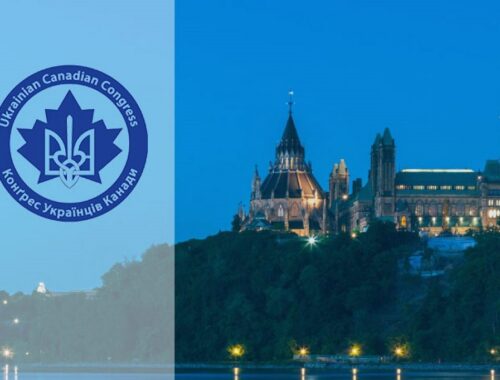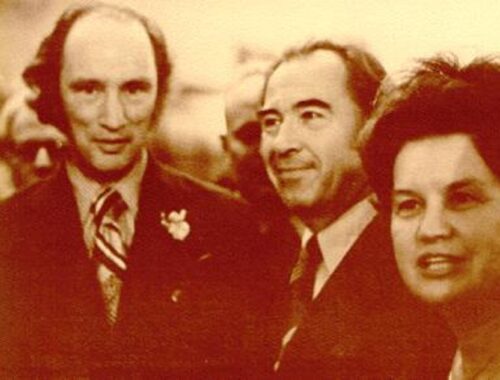
Atlantic Council addresses difficulties of independent media in Ukraine
The sustainability of change is not about who wins a particular campaign, it’s about institutions and being able to institutionalize the change, believe the panelists of Atlantic Council’s event on how to build independent media in Ukraine.
The panel, hosted on November 23 by the Atlantic Council, featured Myroslava Barchuk, a host of Ukrainian TV channel UA: First; Brian Bonner, former chief editor of the Kyiv Post; Yevhen Hlibovytsky, partner at Ukrainian consulting firm Pro Mova; and Sevgil Musaieva, chief editor of Ukrayinska Pravda.
The panelists discussed the difficulties of sustaining independent media in Ukraine, exploring corruption in the current market, the oppression of independent outlets and ensuring financial stability of independent media.
The problem with the commercial side of the media is that the media in Ukraine are seldom part of the subscription and advertisement market, said Yevhen Hlibovytsky.
“Most of the big media are part of the political corruption market and return on investment is much better in political corruption than in advertisement and subscription,” Hlibovytsky said.
For that reason, he said, some well-intended owners are buying the media not because they seek profit, but because they seek additional insurance.
“They are basically raising the stakes for whoever would potentially attack them,” Hlibovytsky said.
This is one of the reasons why independence of the public broadcaster is important, because public broadcaster is slowly establishing and developing the standards, and it’s helping the entire market become more mature.
Hlibovytsky said that, given the pressures from outside and from authorities, the ideal owner of an independent Ukrainian media outlet is someone who is rich, non-interfering, doesn’t live in Ukraine, doesn’t have any friends or family in Ukraine, has no investments in Ukraine and no pressure points from which he or she could be pressured.
“I don’t know such a person,” Hlibovytsky said.
On the other hand, achieving financial stability is quite difficult, said former Kyiv Post chief editor Brian Bonner.
“I don’t know of a single news media outlet that is both commercially and editorially independent. It’s a rare breed in Ukraine,” he said.
Bonner said that the Former Kyiv Post had tried print advertising, print subscriptions, digital access, events and grants and still was not able to turn a profit, and had to be dependent on the owners.
“If you want to grow and if you want to be in the media market in Ukraine, you will need to have more money,” added Sevgil Musaieva.
“Many of the things haven’t changed in 25 years, and that’s corruption on high impunity,” Bonner said. “And these messages, you know, the scrutiny of officials, the scrutiny of their actions, the lack of rule of law, the problems that investors were having… These message the Kyiv Post was delivering to the Western Community, and I think a lot of people in power got tired of it.”
Bonner said that the authorities don’t believe in independent journalism, but rather that if an outlet is a problem, you go straight to who owns it or who controls the source and stop the problem.
“Kivan decided that this was not a good environment to own an independent media outlet, that we were more trouble than we were worth to him in a lot of ways,” Bonner said. “The abruptness of our shutting down surprised me because we’ve had problems before and he talked about selling it, but I didn’t expect him to shut it down completely.”
Myroslava Barchuk said that MPs have a duty to the people of Ukraine to explain their views on the air of the independent media and on the air of the national public broadcaster.
“In the parliamentary democracy, the presidential office cannot impose any kind of stop lists, telling journalists or TV companies who to invite or not” she said. “This conflict has showed that the current authorities, in particular president Zelenskyy, do not understand the importance and the mission of Independent Public Broadcasting.”
But Hlibovytsky believes that “the situation in Ukraine is not all that gloomy”.
“We really have to be vigilant about corporate governance, about attacks on freedom of speech, about making sure that any decisions of the government or media are part of the legal system of decision making, not just the use of brute force”.
If the top ten most popular television stations are owned by oligarchs, how can reform-minded people in Ukraine and Western donors compete with this oligarchy television? Hlibovytsky said, “by being smart and being ahead of competition”.
“When you look at the political logic, it’s quite reactive and old fashioned. The way the Ukrainian government has been treating the media market was not innovative and was not creative,” he said. “The Ukrainian government has been the mammoth that was slowly but steadily trying to build its way around independent media. I think it’s important that the international donors and Ukrainians themselves remain proactive and retain high maneuverability and ability to come up with new ideas on the side of pro-democracy, pro-reformist forces.”
The spirit of Kyiv Post lives on and the entire former team is starting the Kyiv Independent, Bonner said.
“They’re really trying to figure out the puzzle of how to get the money that’s needed to provide independent journalism that’s free from pressure from authorities, and free from pressure from owners,” he said.
Bonner said that Ukraine is more welcoming to independent journalism than a lot of its neighbors, but there is still some hostilities in the market between the media and the authorities that need to be addressed. For things to change, new independent institutions must grow stronger, he said.
This article is written under the Local Journalism Initiative agreement
Kateryna Bandura for New Pathway – Ukrainian News
Follow me on social media!You May Also Like

UCC Alberta presents 2020 annual report
November 16, 2021
UofM panel reflects on legacy of Holodomor
November 30, 2021

